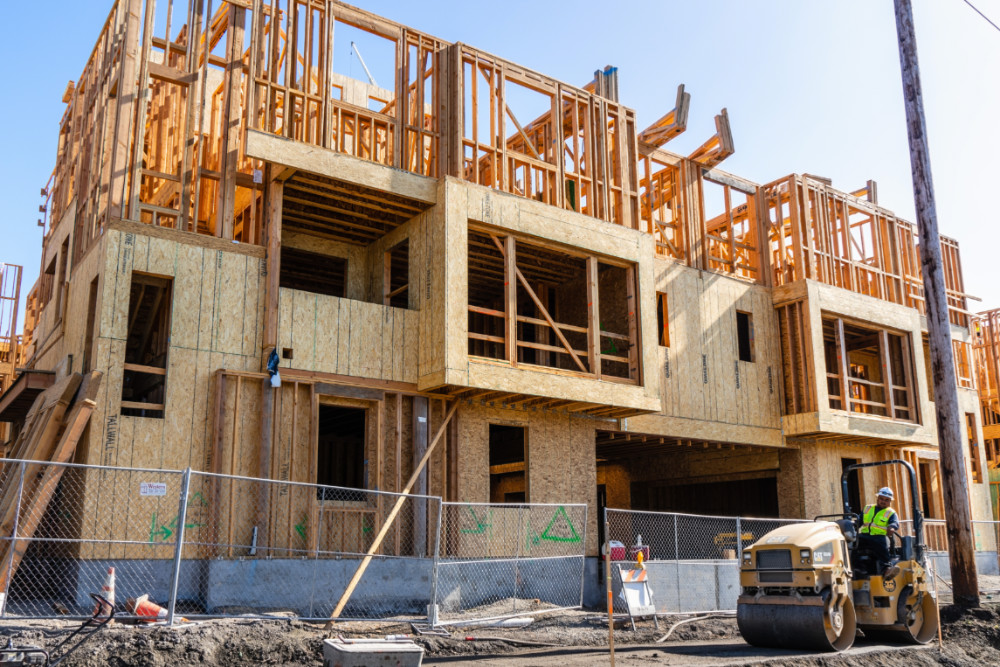
Home Contested Home

Pick a subject — taxes, civil rights, environmental laws, public assistance — and Americans are as divided as oil and water. But one issue in particular seems immune to this partisanship on the local level: housing development. Why is that?
Clayton Nall, a UC Santa Barbara associate professor of political science, will address the issue with new research through the Pahl Initiative on the Study of Critical Social Issues in the Division of Social Sciences.
Nall is the third awardee of the initiative, a gift of alumni Louise and Stephen Pahl to support rigorous social science research on topics of pressing social importance. Work sponsored by the Pahl Initiative includes the involvement of both graduate and undergraduate students, with the goal of bringing academic research to public discussion.
“I was thrilled to be named as the third recipient of the Pahl Initiative grant, made possible by the Pahls’ willingness to commit generous resources to understanding and addressing hard social problems,” Nall said. “And, given their experience as housing practitioners, I especially look forward to learning from them and sharing my results with the broader community of Californians directly engaged with our housing challenges.”
Charles Hale, the SAGE Sara Miller McCune Dean of Social Sciences at UC Santa Barbara who worked closely with the Pahls to establish the initiative, said Nall’s project is a perfect fit: tackling a social issue of deep and urgent importance, with rigorous research both highly valued in the academy and of great practical value.
“Once again, the Pahl Initiative will empower cutting edge research on a critical social issue of our community and beyond, demonstrating how rigorous analysis is crucial to inform sound policy decisions,” Hale said. “We are especially pleased that students will be involved in this research, modeling a data-rich counterpoint to the constant churn of controversy around the housing crisis. Our deepest thanks to Stephen and Louise Pahl for raising the banner of the Social Sciences at UC Santa Barbara, helping us reach new heights of proud accomplishment.”
Nall will collaborate with Chris Elmendorf of the UC Davis School of Law and Stan Oklobdzija of UC Riverside for the project that he said seeks to understand why our otherwise polarized politics so seldom appear to extend to local politics — particularly on the issue of housing development, which is desperately needed in places like coastal California.
“California voters have frequently listed housing costs and housing shortages (as well as related issues like homelessness) as their No. 1 state policy concern,” Nall said. “The measures needed to address housing concerns are not universally popular. Social science can provide answers to the dilemma of how to improve and expand housing while satisfying voters’ sense of fairness and local justice. I can’t think of a more important topic to be pursuing as a new UCSB faculty member.”
Nall’s study will focus on a set of questions related to local housing attitudes, showing how these attitudes frequently are independent of national politics, and assessing what would make Americans across the political spectrum more supportive of housing production. As he notes, American liberals commonly embrace progressive outcomes in the abstract, but balk at supporting local policies that would broaden access to their communities. Responding to social problems at the local level, he said, throws a wrench in the neat “us versus them” narratives that members of the two parties have developed.
“Otherwise liberal places like coastal California have a track record of building very little housing of any kind, even as the population and incomes have grown,” Nall said. “It is the biggest factor driving exclusion and a gap between the haves and have-nots. Yet California local governments led by Democrats have been some of the strongest opponents of allowing building more housing.
“To be sure, the rejection of specific solutions to social problems is not unique to the housing policy domain,” he continued. “People find it easy to endorse equality of opportunity in the abstract, but find reasons not to support the specifics needed to carry out policies. My study seeks to understand what drives people to take the positions they do on local housing development, and tests what sorts of messages might induce them to be more receptive to housing production.”
Nall’s surveys will focus on a set of questions related to local housing attitudes, showing how those attitudes frequently are independent of national politics, and assessing what would make Americans across the political spectrum more supportive of housing production.
The first survey, he said, “tests the idea that localism (a general belief that one’s local community should have primacy in political decision making) is a driving force behind opposition to housing. Is ‘localism’ around one’s neighborhood just a proxy for generalized conservatism or ethnocentrism, or something more basic that cross-cuts Americans’ other ideological preferences? How much is it related to Americans’ positions on housing development policy?”
Additional surveys, Nall added, will examine “what kinds of messages might lead Americans in high-cost metro areas to be more supportive of expedited housing development.”



